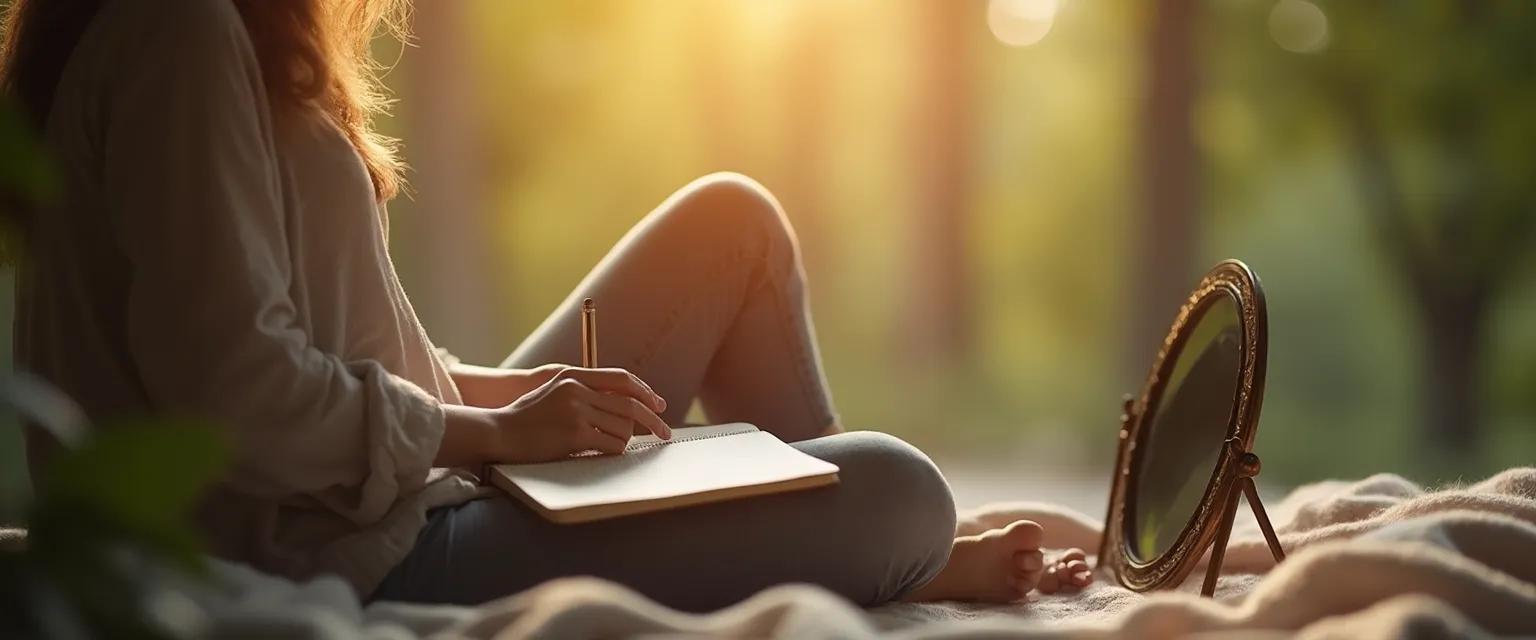Mirror Moments: How Self-Awareness Comes From Daily Reflection Practices
Have you ever caught yourself in a moment of surprising clarity, thinking "where did that insight come from?" The truth is, self-awareness comes from these unexpected moments of reflection that we often overlook in our busy lives. While many of us chase self-improvement through books and courses, the most profound understanding often emerges during quiet moments of honest self-examination. These "mirror moments" – times when we truly see ourselves clearly – aren't just philosophical exercises; they're backed by neuroscience as powerful catalysts for personal growth.
Research shows that regular reflection activates the prefrontal cortex, the brain region responsible for self-evaluation and emotional regulation. This means self-awareness comes from deliberately creating space to process your experiences rather than constantly rushing to the next thing. The most effective emotional awareness develops not from external sources but from turning inward and noticing patterns in your thoughts, feelings, and behaviors.
When we pause to reflect, we create the perfect conditions for insights that transform how we understand ourselves and relate to others. This practice doesn't require hours of meditation or extensive journaling – even brief, intentional reflection can spark significant personal discoveries.
How Self-Awareness Comes From Simple Daily Practices
The best self-awareness comes from integrating small reflection practices into your existing routine. One powerful technique is the "3-minute mirror moment" – literally standing before a mirror and asking yourself three specific questions: "What energized me today?", "What drained me today?", and "What did I learn about myself?" This simple practice bypasses the resistance many feel toward journaling while creating a powerful moment of self-connection.
Another effective approach involves body-based reflection. Your physical sensations often reveal emotional states before your conscious mind recognizes them. When you notice tension in your shoulders or a knot in your stomach, pause and ask, "What might my body be telling me?" Self-awareness comes from these physical cues that serve as early warning systems for stress, anxiety, or even excitement.
Try these mindfulness techniques that fit into even the busiest schedule:
- The commute reflection: Use the first or last five minutes of your commute for a mental review of your day
- The transition pause: Take 30 seconds between activities to notice your mental state
- The emotion check-in: Set a random timer once daily to name what you're feeling in that moment
These micro-practices demonstrate how self-awareness comes from consistency rather than duration. Even brief moments of reflection, when practiced regularly, build the neural pathways that enhance your emotional intelligence.
Transformative Moments When Self-Awareness Comes From Reflection
The magic of regular reflection lies in the pattern recognition it enables. One client discovered through daily reflection that her anxiety spiked not during work presentations as she'd always believed, but during the preparation phase the night before. This insight breakthrough allowed her to implement targeted stress reduction strategies exactly when she needed them most.
Self-awareness comes from these moments of connection between your actions and outcomes. Another powerful example comes from a tech executive who noticed through reflection that his most creative solutions emerged after conversations with specific team members. This awareness allowed him to intentionally schedule these interactions before tackling complex problems.
The ripple effect of such insights extends beyond personal growth to transform relationships and decision-making. When you understand your emotional patterns, you respond rather than react, creating space for more thoughtful choices in moments of pressure. This self-awareness comes from practical reflection rather than abstract theory.
To integrate reflection naturally into your routine, attach it to existing habits. Reflect while brushing your teeth, waiting for coffee to brew, or during the first minute of your lunch break. These "habit stacks" make reflection automatic rather than another task on your to-do list.
Taking Your Self-Awareness Journey Forward
Ready to begin your reflection practice? Start with just one minute daily using this simple prompt: "What surprised me today?" Notice how self-awareness comes from this tiny investment of time as you begin recognizing patterns in your responses.
Track your insights in whatever way feels effortless – a notes app, voice memo, or even mental bookmarking of significant realizations. The key is consistency over perfection. As weeks pass, you'll notice how self-awareness comes from this accumulated knowledge about yourself, creating a foundation for better decisions and more authentic connections.
Remember that self-awareness isn't the destination but a continuous journey of discovery. Each reflection builds upon previous insights, creating a deeper understanding of yourself over time. The most valuable self-awareness comes from embracing this process with curiosity rather than judgment, allowing each mirror moment to reveal new facets of who you are and who you're becoming.




